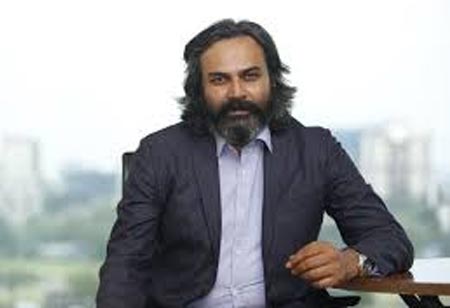A Finance Leader's Mantra In Today's Era Of Digitisation
By Neeraj Dotel, MD - India & SAARC, SAP Concur

Neeraj Dotel, MD - India & SAARC, SAP Concur
SAP Concur takes companies of all sizes and stages beyond automation to a completely connected spend management solution encompassing travel, expense, invoice, compliance and risk. The global expertise, industry-leading innovation and dynamic ecosystem of diverse partners and applications of the firm unlock powerful insights that help businesses to reduce complexity and manage the spending pro-actively.
In today's dynamic business environment, a Chief Financial Officer's role is no longer restricted to the finance function. Traditionally, the CFO's role entailed supervising, managing and engaging the work of the financial controller, credit manager and insurance manager, which is extremely challenging. CFOs are now wearing different hats and playing diverse roles, owing to global financial scenarios, rise of big data and the impact of social and digital media. Companies need to ensure that CFOs come from diversified backgrounds, with experience that cuts across industries and business environments, to be able to demonstrate new skills sets and capabilities that are not always traditionally associated to the accounting profession including business planning, risk management, influencing and strategic thinking.
While consumer payments are going digital on mission mode, most payments in the corporate world in India are still trapped in paper bills, cash transactions and hardbound files saved for audit trails. Sensing opportunity in digitising these, new-age companies are trying to bring innovative solutions. But challenges are aplenty.
“While consumer payments are going digital on mission mode, most payments in the corporate world in India are still trapped in paper bills, cash transactions and hardbound files saved for audit trails.”
Here are 5 technology trends that CFOs need to consider for the finance team and the enterprise:
- Predictive Analytics & Data: It will continue to drive business decisions with more precision and insight than ever before. By further "democratizing" data, business leaders will be able to have greater insight into real-time spending as well as better forecasting capabilities - both can help maximize the return on spend.
- Robotics: It will take over more back-office operations in areas such as Accounts Payable (AP) and Accounts Receivable (AR). The result is that in the next five years, many transactions will be handled without intervention, streamlining workflow management such as expense approvals and reimbursements.
- Cloud Computing: The next-generation of cloud computing will spark the explosion of connected devices and more real-time user interfaces over the next four to five years. The architecture of IT will flip upside down, as data and content move to centralized cloud data centres and other platforms.
- Cyber Security: It will remain a hot topic, given that 2017 was riddled with high-profile attacks. CFOs need to step up their game as risk managers and ensure that they have the latest processes to protect the sensitive data of customers, employees, and business partners, and in turn ensure that third parties are also safeguarding company information.
- Budgeting: Budgeting processes and technologies will continue to evolve. As a result, finance will need to hone its tech skills during the budgeting process. The focus must be on building platforms that enable integration and integrity, thereby solving the issue of too many data sources. Technology supporting the budgetary process should also enable flexible analysis (line-item detail, what-if analysis, ongoing adjustments, and on-the-fly analysis).
Absorption of new generation employees is making organisations rethink how work is done. With the evolution of big data, business leaders have been provided with access to more information than ever before, and globalization has opened new opportunities as well as new risks for businesses. These have not just changed the way businesses are carried out but also the role of finance.
Over the period, finance leaders have transformed themselves into a multi-tasker; their responsibilities have evolved from business strategy to operations to IT risk management. The role of finance now involves all areas of business.
It's exciting to watch CFOs step into bigger, more prominent roles. This new crop of leaders isn't afraid to take chances and push their companies into the future. They understand the big picture, and the hard facts to back up their recommendations. As their role evolves, CFOs are helping to actively forge the organization's path to success.
Advances in disruptive technology will transform life, business, and the global economy. Digitization will have a major impact on finance processes and finance professionals, as well. Now is the time for CFOs to step up and play a major role in guiding their company through the digitization journey. An important initial step will be setting up a digital agenda and roadmap. In short: The modern CFO is here to stay. Are you ready?




